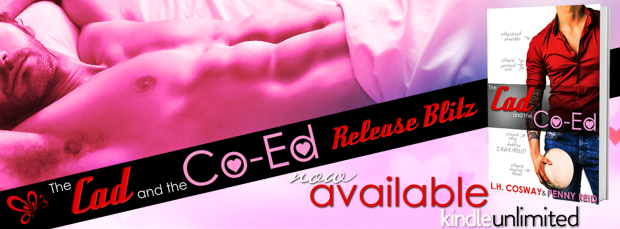 In the next edition of my apparent series of reviews of books that are in one way or another about sports, I made my way through another novel that I’d heard a lot about and knew that I would probably like. Robert Coover’s The Universal Baseball Association, Inc., J. Henry Waugh, Prop. was something I’d come across in a few different places. Books about baseball, books of an existential or philosophical nature, postmodern novels, important American novels of the twentieth century, there were many lists on which Coover’s novel might have appeared that I read and subsequently noted The Universal Baseball Association as a book I needed to read. Motived by finally reading A Fan’s Notes or perhaps because I finally got my hands on my Strat-O-Matic baseball board game from back home, or just because we’re beginning the Major League Baseball season, I felt the push and decided to finally read Coover’s most famous novel.
In the next edition of my apparent series of reviews of books that are in one way or another about sports, I made my way through another novel that I’d heard a lot about and knew that I would probably like. Robert Coover’s The Universal Baseball Association, Inc., J. Henry Waugh, Prop. was something I’d come across in a few different places. Books about baseball, books of an existential or philosophical nature, postmodern novels, important American novels of the twentieth century, there were many lists on which Coover’s novel might have appeared that I read and subsequently noted The Universal Baseball Association as a book I needed to read. Motived by finally reading A Fan’s Notes or perhaps because I finally got my hands on my Strat-O-Matic baseball board game from back home, or just because we’re beginning the Major League Baseball season, I felt the push and decided to finally read Coover’s most famous novel.
The novel focuses on the life of the Henry Waugh of the title, a man who has created a dice-based baseball game. But his creation hasn’t stopped there as he’s created a league of players, an entire history that has goes back many years, and the lives of these players that they lead when they aren’t on the baseball diamond. There are families and rivalries and traditions and events that exist beyond the boundaries of the novel. We first encounter Henry in the middle of one of these games, in which Damon Rutherford (who is the son of Brock Rutherford, one of the greatest pitchers in the history of this game he’s created) pitches a perfect game. Henry is filled with a certain kind of joy and elation in the wake of this accomplishment for one of his players, a player who has a pedigree within this game, and thus elects to pitch him again the day after pitching that perfect game. In that game, he ends up on the Extraordinary Occurrences chart and Damon is hit by a pitch and killed. The “death” of this fictitious player causes Henry’s life to go out of control and affects him much like a “real” death would and we witness the crumbling of Henry’s life as a result of this incident. He could just ignore the results of the game or make a change to prevent Damon from being struck and killed, but that would destroy the rules that bind the game and make it “real.”
That’s probably all we need in terms of recapping of the plot and background information because, perhaps not that surprising for a postmodern novel, it’s not the most important thing. The content of the novel, the characters and the conflicts and situations, are more of a device for Coover to explore themes and ideas as opposed to trying to depict something. While it’s not as absurd and surreal as some postmodern novels and somewhat concerned with realism, it’s not as “realistic” as other non-postmodern works. Regarding the thematic and conceptual aspects of the novel, one can see that there are very postmodern notions of what is real versus what is constructed and ontological questions present that arise from Henry and his life. Questions about free will and destiny emerge through Henry and his game, as well as issues of the divine and omnipotence as Henry is in a godlike role with the world of the Universal Baseball Association that he has created and the ways in which his actions (at least that he is the one rolling the dice). There’s even some sound play going on here with J. Henry Waugh and YHWH, one of the Jewish names for God. As Wilfrid Sheed writes in his review of the book for the New York Times “Baseball and theology might seem to make strange bedfellows. But like a medieval schoolman who could make theology out of just about anything, Robert Coover has spliced the two together and produced a species of baseball scripture. His God is a lonely middle-aged accountant who has devised a dice-game that approximates the probabilities of baseball. That is all. Upon the void he projects the laws of chance, the percentages, what managers call, ‘the book.'”
What makes this such a great novel is the way that it is all of the aforementioned things as well as a depicting of what it is like to be passionate about sports or a game or something like that (in a somewhat similar vein to novels like High Fidelity or The Moviegoer). It is one of the great books that is “about” baseball. Well, let me clarify– it’s not about baseball in the same way as novels like The Natural or Shoeless Joe are about baseball, but baseball and the attendant fandom/fanaticism play a big part in the narrative of Coover’s novel. Postmodern novels are often overwhelmed by their postmodernness to the point where what is happening in the story is totally lost. The subject of the book itself does not matter as much as the theory or philosophy or concept that is being explored. The Universal Baseball Association, by contrast, does all those things and is still at its heart a book that’s about baseball. For someone who does not enjoy postmodernism as much as others but who loves baseball (and the baseball games like that which is depicted in the novel), this makes Coover’s novel both a palatable experience with the postmodern as well as one that reflects my experiences as an occasionally obsessive baseball fan. And while it is a novel, like so many of the best ones, that I feel like I need to read again another time to really pick up everything and appreciate it, I enjoyed that first reading and am looking forward to picking up The Universal Baseball Association again.
Share this:




